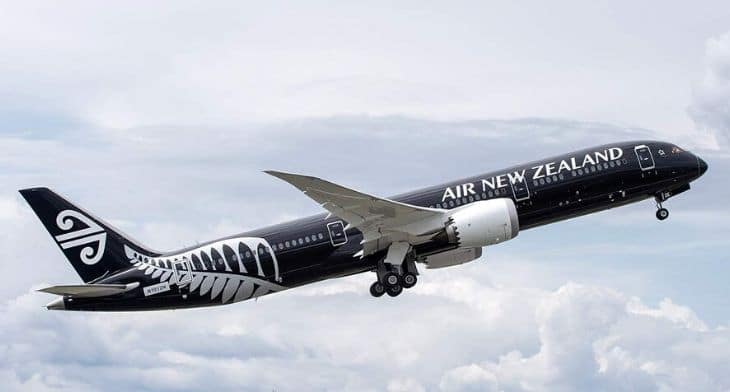Air New Zealand’s 2022 sustainability report released

Below, Air New Zealand’s Chair Dame Therese Walsh and Chief Executive Officer Greg Foran talk about how the carrier is applying sustainability in its operations.
As the world reopens, it’s clear the climate crisis is continuing to accelerate rapidly. We are acutely aware that in order to continue to connect Kiwis to the world and the world to us, we must work hard to reach net zero carbon emissions by 2050.
We’re seeing travel bounce back much quicker than anticipated and have full flights reconnecting families, friends and colleagues from around the globe. International tourists are once again back on our shores and we’re continuing to share New Zealand’s quality exports with the world. But we’re leaning into the challenges we face as we seek to take genuine action on climate change. As a small island nation, we’re dependent on our connections to the world, and we must find a more sustainable way to fly if we want to ensure our tourism and export industries continue to thrive.
This year, we embarked on our most important journey yet – Flight NZ0. Flight NZ0 is not just a name, it’s a commitment to all New Zealanders that we will find a more sustainable way to connect with the world. It’s a journey to a new era of air travel. One that actively reduces the carbon we emit, until we reach our net zero by 2050 goal.
To guide us and keep us accountable we have set an interim 2030 science-based carbon reduction target, validated by the Science Based Targets initiative. We were the second airline in the world to announce a target with this prestigious validation. We know achieving the target will be hard, but we are committed to taking genuine action on climate change and believe our airline will be more resilient as a result.
The use of sustainable aviation fuel (SAF) is the single biggest decarbonisation lever we can pull. There is no SAF produced in New Zealand, so this year we have partnered with the Government to scope the feasibility of domestic SAF production. We have also received our first delivery of SAF to New Zealand and are aiming for 1 percent of our fuel to be SAF in 2023.
We have also continued to lead in innovation, releasing our Zero Emissions Aircraft Product Requirements Document to the market signaling our ambition to fly zero emissions aircraft in New Zealand. It outlines what we as an airline require to introduce this technology into our fleet, and further solidifies that when the technology is ready, we are too. Along with the learnings from our first year of partnership with Airbus researching the operation of hydrogen powered aircraft, we firmly believe both New Zealand and Air New Zealand are uniquely placed to lead the world in the deployment of zero emissions aircraft.
There’s also been innovations made inflight. We’re introducing more sustainable serviceware on our international flights this October allowing us to reduce both our single-use plastic in our Economy cabin and the weight of our serviceware in the Premium cabins.
Once more, the Air New Zealand whānau has continued to go above and beyond, restarting the airline at scale, dealing with complex operational challenges, launching and completing a significant capital raise and progressing our ambitious sustainability agenda. The collective mahi, resilience and commitment of our people continues to inspire us and we are immensely proud of all we have achieved.
Our Sustainability Advisory Panel, continue to walk beside the Board and Executive on our journey bringing robust critique, inspiration and a wealth of knowledge and experience.
We are proud of where we are on our journey, but there remains much more to achieve. In November we will welcome our first Chief Sustainability Officer into the Executive team. This appointment will build on the foundation we have already laid and signal a step change for sustainability at Air New Zealand.
As we reflect on 2022 and look to the future, we’d like to extend a thank you to the Air New Zealand team for its unwavering dedication, to our customers for continuing to challenge us and hold us to account, and to the Sustainability Advisory Panel for helping to guide us towards our goals.
The report can be found here.
